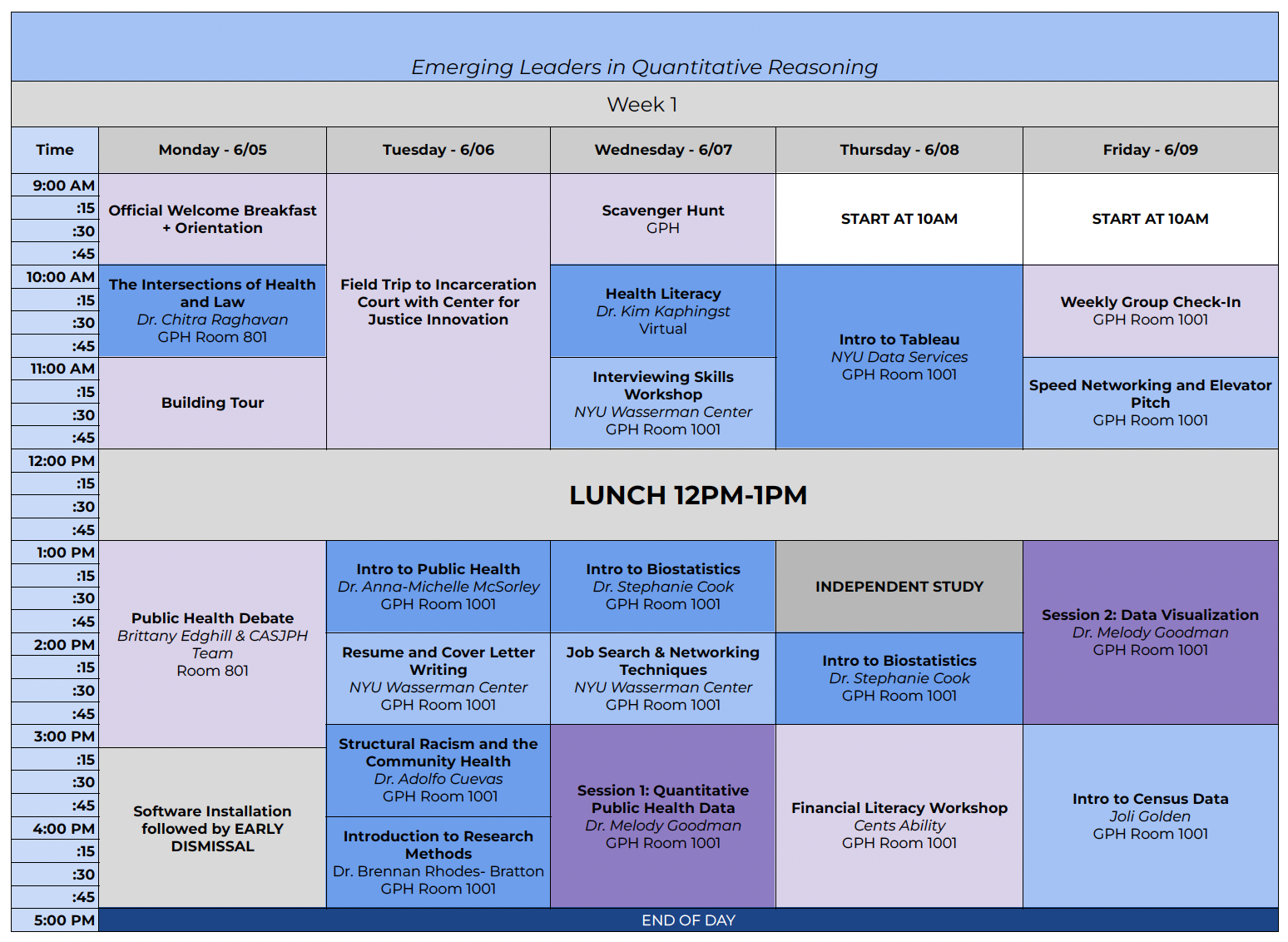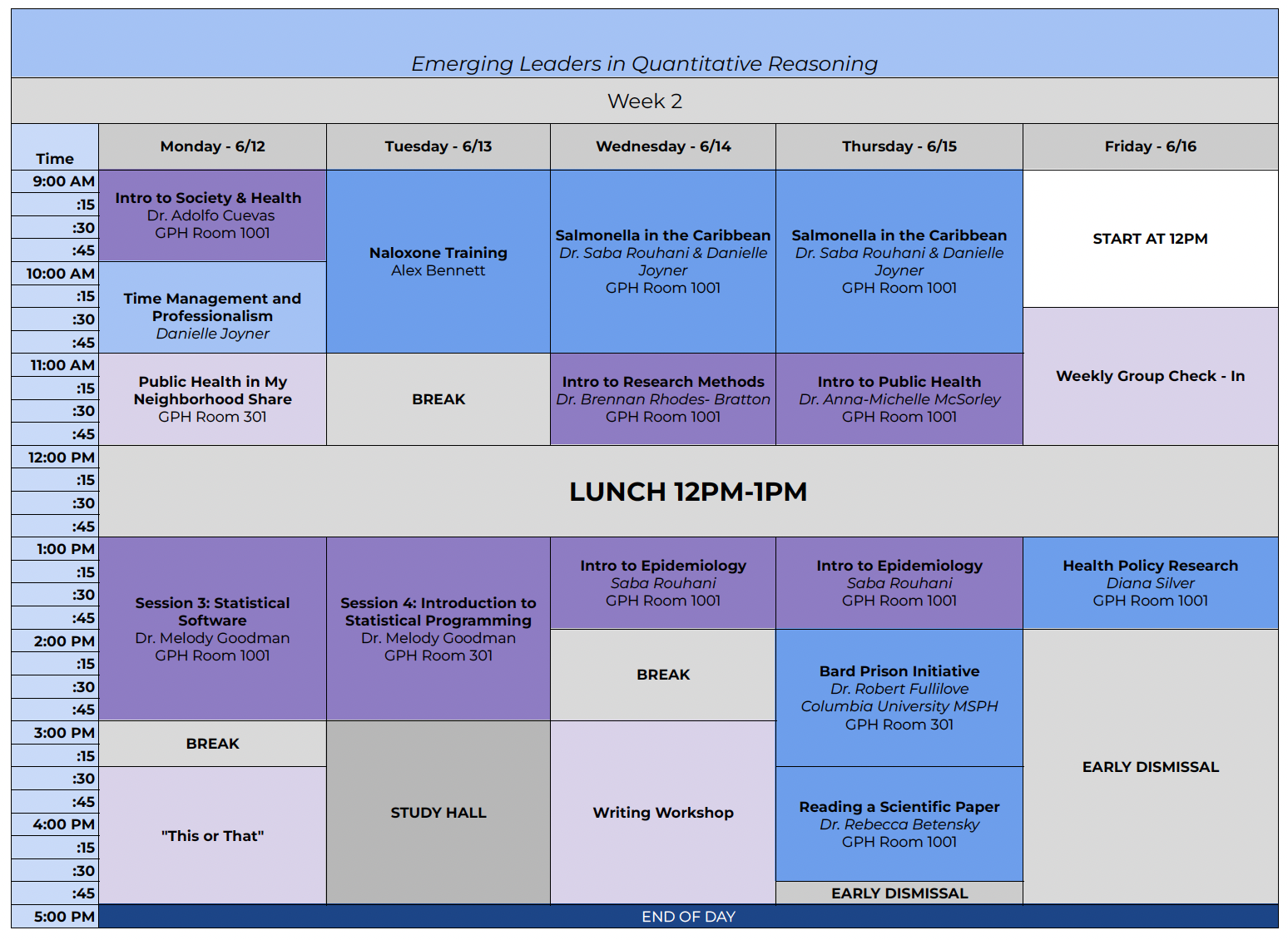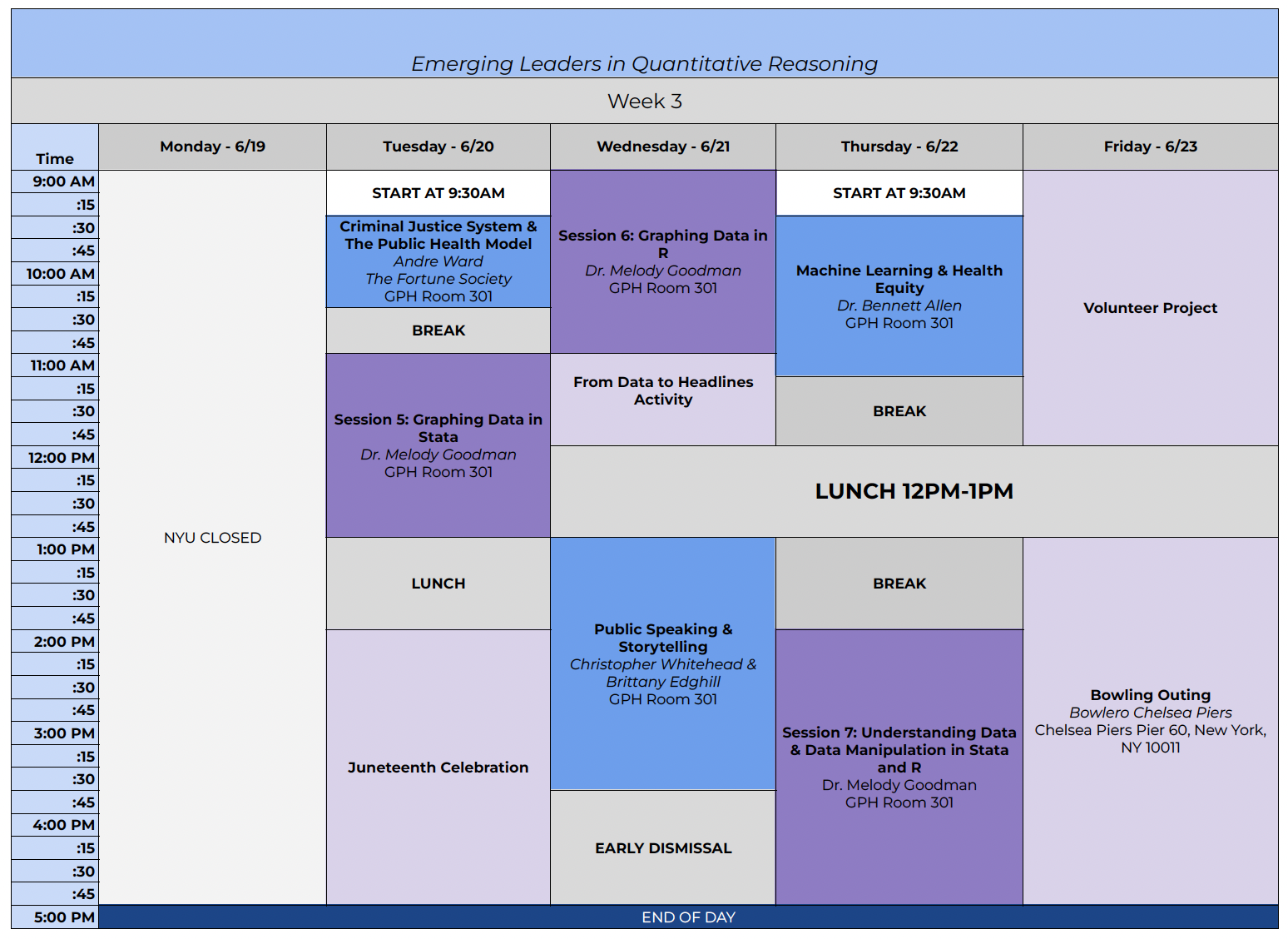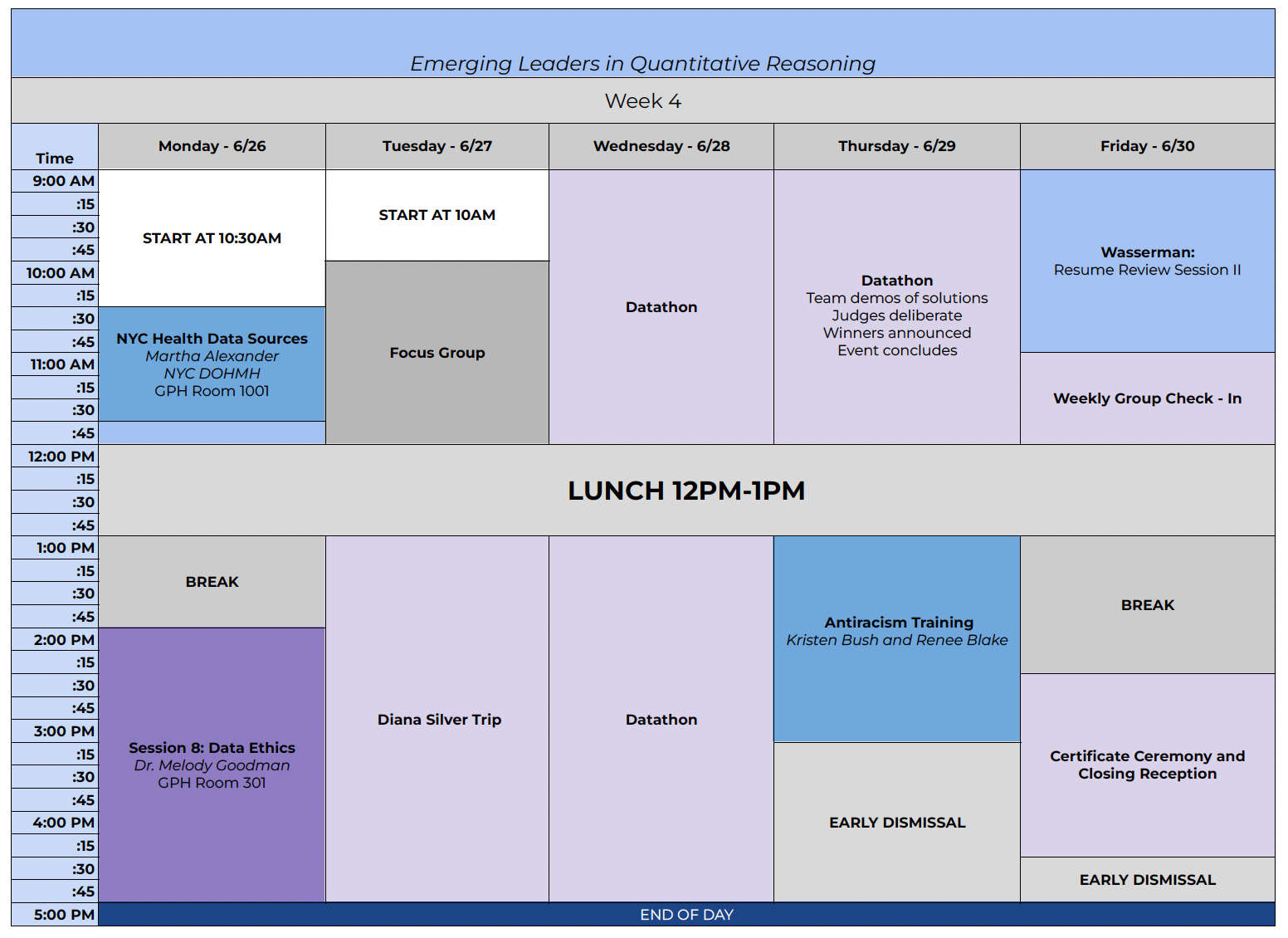Emerging Leaders participate in various courses to expand their professional and educational development skills. They also are introduced to public health, data analysis, and the intersection of public health and criminal justice. Emerging Leaders are immersed in a 4-week Data Literacy BootCamp on NYU's Campus. Emerging Leaders learn to use R, Stata, and Tableau software.
Courses include:
Professional Development:
-Resume and Cover Letter Writing
-Job Search and Networking Techniques
-Time Management and Professionalism
-Speed Networking and Elevator Pitch
Educational Development:
-Intro to Public Health
-Intro to Epidemiology
-Intro to Research Methods
-Intro to Biostatistics
-Intro to R and Stata
-Structural Racism and Community Health
Additional Courses:
- Opioid Overdose and Naloxone Training
-Salmonella in the Caribbean Case Study
-Anti-racism Training
-Financial Literacy Workshop
-Intro to Census Data
Social Activities:
- Bowling
- Juneteenth BBQ




The Data Literacy Courses include 8 sessions:
- Session 1: Quantitative Public Health Data
- Introduction to public health
- What is quantitative data?
- What is data literacy and why is it important?
- Session 2: Data Visualization
- Why visualize?
- Visualization Best Practices
- Overview of Chart Types
- Session 3: Statistical Software
- Introduction to R and Stata software
- Session 4: Introduction to Statistical Programming
- Introduction to Stata language
- Comparison of statistical programs
- Introduction to R language/ R studio
- Get familiar with R/R Studio Interface
- Importing data into R
- Session 5: Graphing Data in Stata
- Creating graphs using Stata
- Data formatting
- Labels and Notes
- Coding missing values
- Session 6: Graphing Data in R
- Creating graphs using R
- Data formatting
- Labels and Notes
- Coding missing values
- Session 7: Understanding Data and Data Manipulation in Stata and R
- Converting variables from string to numeric
- Generating new variables
- Recoding variables
- Generating composite variables
- Generating variables using arithmetic and relational expressions
- Manipulating Entire Datasets: Append, Merge, Collapse
- Identify and remove duplicates
- Reshaping data sets
- Session 8: Data Ethics
- What are potential ethical questions arising in data management?
- What are the “rules of the game”?
- Where to go for guidance?